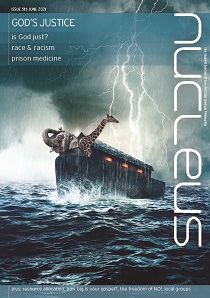black British history
Early on in its history, European imperialism found ways to justify the slave trade, including the use of Scripture.[ 2] Black people were in Britain as early as Roman times, with specific examples such as the 'Ivory Bangle Lady', believed to be of North African descent. There were also black migrants in Tudor times, including John Blanke, an African trumpeter to King Henry VIII.[ 3]
During World War One, soldiers were recruited from across the Commonwealth, and told they would be warmly received in the UK. The reality was very different. 1919 saw large-scale racist attacks on 'coloured' communities in London, Manchester, Liverpool and Hull.[ 4]In 1948, the Empire Windrush arrived from Jamaica, filled with people coming to help rebuild the UK after World War Two.
The NHS was established in the same year. In the 1960s, the government led a recruitment drive for nurses from the Caribbean. People from Africa, the Caribbean and Asia were also encouraged to join the Post Office, British Rail, and London Transport. Sadly, they faced 'structural inequalities and discriminatory attitudes and behaviour' upon their arrival.[ 5] 1962 saw the introduction of the Commonwealth Immigrants Act, [6] aimed at reducing immigration from the former Empire; prior to this, there had been a right of free movement extended to all citizens of the Commonwealth. In April 1968, Enoch Powell delivered his famous 'Rivers of Blood' speech, predicting that, over the next decade, 'the black man will have the whip hand over the white man'. He was sacked by his party leader for making this speech, though thousands turned out in the streets to support him. [7]
It is not all negative though. Trevor McDonald became Britain's first black newsreader in 1973. In 1975, the Race Relations Act made racial discrimination unlawful in employment, trading, housing, and education. [ 8] In 1987, four MPs from black and Asian backgrounds were elected to Parliament — the first since 1922. [9] 2005 saw our first black rugby union team captain and Archbishop of York. However, now that the Race Relations Act is more than 45 years old, how far have we really come in that time?
race and the workplace
'I don't b****** believe it. The doctor's a b***** black b******'. This was my greeting from a patient I was called to clerk. It was two am and I was heavily pregnant with twins. A staff member 'explained' to me, 'Oh, he's having a mental health relapse'. These episodes always make him racist. I have heard everything from delirium, to bereavement, to head injury used as an excuse for racism. In reality, none of these things cause someone to be racist — but perhaps simply highlight inner prejudice. On this particular occasion, I responded, 'I'm sorry, Mr XX, what you have said is rude and racist. I will come and see you, but at the moment, I am getting a handover from the nurse. Please return to your room and I will join you'. I didn't refuse to clerk him, but I had to acknowledge his behaviour. In my experience, there seems a reluctance to recognise racism as unacceptable in the workplace. I wish one of my colleagues had been brave enough to speak up on my behalf, as I felt incredibly vulnerable. [10]
Sadly, my working life has been full of stories of overt racism and microaggressions (indirect, subtle, or unintentional racial discrimination) from patients and colleagues alike, and my experience is not unique. In a recent survey, 14.5 per cent of ethnic minority staff described personal discrimination from managers, team leaders, or colleagues. [11] In addition, high profile cases such as that of Dr Hadiza Bawa-Garba[ 12] have highlighted that ethnic minority staff are also more likely to enter disciplinary proceedings in 64.5 per cent of NHS Trusts than white staff. [13] Figures for GMC referrals also show significant ethnic differences, which may have a variety of causes. [ 14] All these raise questions about the level of conscious or unconscious bias within the organisations that employ and regulate us.
two pioneering doctors in the UK
James Samuel Risien Russell was the UK's first black British consultant. Born in 1863 to a Guyanese father and a Scottish mother, he was awarded the gold medal for outstanding achievement at Edinburgh University. He experienced much racism with biographies referring to his 'dark skin', and his 'n***o laugh' and features. Despite this, he became a renowned professor of neurology and a Fellow of the Royal College of Physicians. [15]
Harold Moody was born in 1882 in Kingston, Jamaica. He was a committed Christian, active in several Christian fellowships. He moved to England in 1904 to study medicine at King's College London. Despite finishing top of his class, he was refused work because of his skin colour. He eventually set up his own successful practice and in 1931 he formed the League of Coloured Peoples, an advocacy group concerned with racial equality and civil rights in Britain. [ 16]What strikes me about both of these men is their excellent academic achievements. I have been told by many ethnic minority senior colleagues, 'We have to work twice as hard to be seen as half as good'. Although attitudes have changed, we must ask ourselves why this is still the case within our profession.
race and the church
My parents moved from London to Basingstoke when I was three, so I have spent most of my life in white majority churches. I grew up singing Matt Redman at church, and Ron Kenoly at home! Some years ago, our worship team wanted some new praise songs. I suggested that gospel music was the solution and was told: 'That music is not our style'. My initial thought was 'Well, it's my style, and I'm a part of this church and this team. So where does that leave me?"' The topic of race and the Church has long been contentious. I have always felt welcome in the white majority churches I have attended. I am privileged to be involved in leadership in my church. But I have also experienced racism, and microaggressions such as 'We always brace ourselves when one of you prays', or 'You might be better off at the [black majority] church down the road'.
It remains rare to see black leaders and Bible teachers in white majority churches or indeed white leaders in black majority churches. The same applies to many large Christian conferences and events. There may be historical reasons for this, [17] but perhaps unconscious bias is still a persisting issue in the Church. The Archbishop of Canterbury has described the Anglican Church as 'still deeply institutionally racist'. [18] I firmly believe that many churches want their minority members to feel welcome but intentions are not enough. To steal an analogy from Pastor Yemi Adedeji, it's like inviting people to your party, insisting that they listen to music they don't know, and then wondering why they won't dance!
In order to progress, the Church needs to be prepared to get uncomfortable. Perhaps that is why there is a reticence to engage in the issue of racism. We can all agree that human trafficking is abhorrent, for example — but it is very much an 'out there' problem. Racism is an 'in here' problem; requiring churches to search ourselves and our motives, as well as to listen to the experiences of racial discrimination that people have had within church. To continue our analogy, if we want to see change, we must invite ethnic minority members to sit at the table, choose the music, and help plan the party.
how can we respond?
Remember that we are all made in God's image! From one man he made all the nations, that they should inhabit the whole earth; and he marked out their appointed times in history and the boundaries of their lands (Acts 17:26). Those of us from minority ethnic backgrounds must not despise our design. As a child I was desperate to blend in, but I have come to realise that it is not by mistake that I was born into this body, in this generation. I too bear the image of God with my brown skin and my curly afro hair! What an incredible thought!
speak up!Speak up for those who cannot speak for themselves (Proverbs 31:8).If you see racism at work, speak up. Let your ethnic minority colleagues and patients know that you see the injustice, and that you care. The racism you witness is probably the tip of the iceberg.
encourage conversations in your churches
Love does not delight in evil but rejoices with the truth (1 Corinthians 13:6).Ask your leaders about their stance on racial injustice. There are some great resources for churches; some are included below. Encourage dialogue around the sin of racism, the evil that it has brought, and continues to bring.
prayerfully consider whether there is any unconscious bias in your own heart
Do not conform to the pattern of this world, but be transformed by the renewing of your mind (Romans 12:2).
Whatever our ethnic background, we all have prejudice in our hearts. Only by bringing it into the light can we ever hope to truly move forward and love people in the way that Jesus loves them.
Returning to the situation with my daughter at nursery, I knew that how I responded was crucial. We talked about her Ghanaian heritage and all the things we can do with our hair that others can't. I championed her curls! The next day, I asked her how she would like her hair... 'I'll have it down, Mummy, with my curls out'. The next generation is watching. Let's celebrate the diverse representation of the image of God.
and finally...After this I looked, and there before me was a great multitude that no-one could count, from every nation, tribe, people and language, standing before the throne and before the Lamb. (Revelation 7:9)
The worship of heaven is multi-coloured, multicultural and multilingual! One day, we will stand before the throne. Every nation, tribe, people and language, shoulder to shoulder, eyes firmly fixed on Jesus. This is what eternity looks like. Until we get there, let's commit to seeing this mirrored, on earth as it is in heaven.
BIBLE VERSES AS A STARTING POINT FOR CONVERSATIONS ON RACE:- Exodus 22:21
- Leviticus 19:33-34
- Malachi 2:10
- Acts 10:34
- Romans 1:16
- Romans 2:11
- 1 Corinthians 12:13
- Ephesians 2:14
- Colossians 3:10-16
- 1 John 2:11
- 1 John 4:20
































